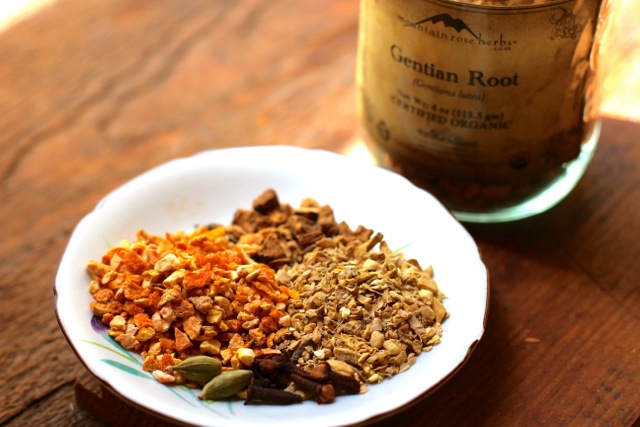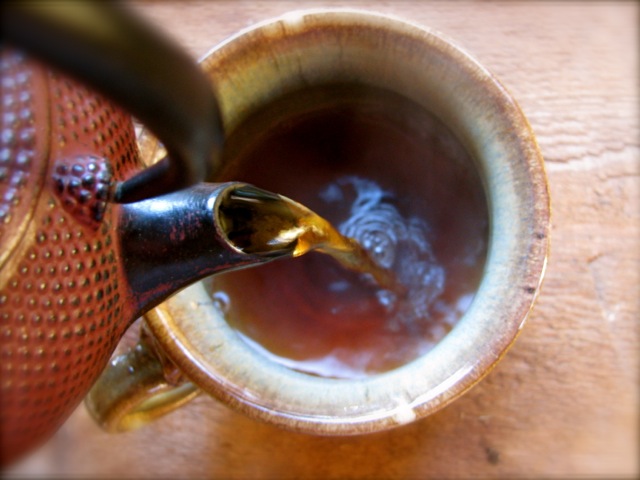Do You Want Better Health Naturally?
This website contains some of the best herbal advice available. It is not about handing you off-the-cuff herbal remedies advice that have been copied and pasted from other websites. Instead, I have carefully written each article to teach you how to think about natural health and wellness from a holistic perspective.
If you just want to browse through the natural health articles below, please click here.
My Own Healing Journey
Ten years ago I was diagnosed with a terminal autoimmune disease and doctors had no answers for me. I was so sick that I could barely move or else I was in agonizing pain. For a while I thought my life was essentially over. But then I turned to herbalism and other natural therapies and healed myself of this horrible disease. You can learn more about my story here.
However, healing myself of a serious chronic disease wasn’t as simple as taking one herb for autoimmunity. Instead it was a journey of healing that incorporated advanced herbal diagnostics and herbal formulas created specifically for me along with other important diet and lifestyle improvements.
So while natural herbal remedies are effective and safe it is also the way we approach our health that is just as important.
More and more people are turning to herbal remedies instead of traditional over-the-counter medicines because they are safe and affordable.
But Are Herbal Remedies Effective?
It's often pointed out that people have been using plants for healing for thousands of years. However, what makes herbalism effective is not only WHAT plants are used but HOW they are used.
The modern herbal market industry is quick to advertise using herbs the same way we have been taught to use western medicine. Have eczema? Then take this herb. Have high blood pressure? Then take this herb.
When herbs are used in this manner they are sometimes effective and sometimes not. This hit-and-miss approach to herbalism can leave you feeling frustrated and unsure if herbs really do work.
That's why I personally use a holistic approach in which I consider the person as a whole and offer them herbs specifically beneficial to their particular case. This way, herbal remedies can be very effective indeed.
“I Have _______ Disease/Problem. What Herb Is Good For That?”
The above question is frequently asked by those who are beginning to form an interest in herbs. It’s a logical question. They have a health problem and they’d like to use herbs to help that health problem.
However, if that person is truly seeking out ways to permanently solve their health problems naturally, then this is not the best way to go about it.
Of course, if the person has a bee sting, minor cut or a bruise then there are many herbs to quickly and easily recommend.
If the person has a chronic health issue, however, it then becomes much more complicated.
Using Herbs for Chronic Health Problems
Because I work with people to restore health from the root of the problem, it is impossible to assign one herb to chronic diseases without knowing a lot more about the person than simply the name of their diagnosed disease.
Rather than using herbs to suppress symptoms or in a hit-and-miss fashion I want to know why the person is experiencing bad health.
While western medicine may diagnose 10 people with eczema and give them all the same “cures”, I believe it is more important to look at the individual and the problems they are specifically experiencing.
Is there something wrong with their diet? Are they not getting enough nutrients? How is their sleep? Is there something awry with their digestion? Are they experiencing too much stress?
The answers to these questions (and many more) help to determine the best way to restore vibrant health naturally, while simply stating a disease name does little to actually pinpoint why a person has “dis”ease.
Herb and Drug Interactions
Another important consideration can be other significant health problems the person is experiencing as well as which medications they are taking. While most herbs are incredibly safe with little to no unwanted effects, herbs and drugs can sometimes interact negatively. It is irresponsible to take herbs alongside drugs without knowing the possible interactions and contraindications.
Choosing The Herbs Is Just The Beginning
Once you’ve established a wellness plan based on your individual needs, the work has only just begun. There is no standardized way to take herbs and there is no standardized dosages. While this might seem like a bother (it’s certainly not as easy as saying “take this pill three time a day”), it is also another way that herbalism can be incredibly effective.
Instead of having a one-size-fits-all approach, I tailor the herb, the way the herb is taken, and the amount that is taken specifically to the individual.
Some things to consider... Is the herb best taken as a fresh tincture or as a capsule? Maybe a tea? How long should it steep? Or should it be simmered? For how long?
How often should the herb be taken? At what dose? When should you expect results?
I hope by now you see why it is difficult to simply spout off a list of herbs for any given disease. Herbs, people and chronic disease are too complex for off-the-cuff responses.
Use Herbs for People, Not Diseases!
Matching herbs to a person's specific body and condition (instead of for a diagnosed disease) is the best way to achieve long-term success with herbs.
In this way we move beyond simply suppressing symptoms (which is common in western medicine) and instead use herbs to create balance and wellness.
Instead of asking, “I have ________ chronic disease, which herb is good for that?”, consider working with an experienced herbalist who can expertly evaluate your total health and create a personalized plan to help you restore your health.
Index of Natural Health Articles
Below is a complete listing of all the articles I’ve written about specific diseases, arranged by the systems of the body associated with them. You can also use the search bar at the top right corner of every page to find the content you're looking for.

